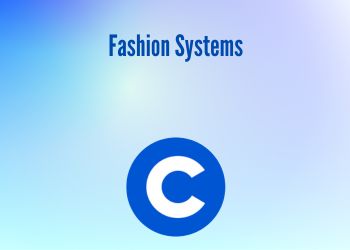Textile engineering is known to be a very popular engineering field in this modern era. It is formed with two different words, textile and engineering. Textile is a Latin word referring to texture and meaning to weave. Textile usually indicates woven, non-woven, fabric, or cloth. Thus textile engineering is related to producing any product that is of textile material. Textile manufacturing has become a significant industry in today’s world due to the increasing need for clothing. Below you can find the list of Best NPTEL Online Textile Engineering Courses for further learning.
Best NPTEL Online Textile Engineering Courses….
Evaluation of Textile Materials
-
-
- via NPTEL
-
In this course, you will understand how the evaluation of textile materials is an extremely important activity for textile production. You will understand its importance in product and process development, research, distribution, and consumption as well.
- The best thing about this course is its focus on explaining all about the selection of raw materials and why the evaluation of characteristics of textiles is necessary. You will understand the role of testing in this entire process. In addition, the instructor will explain how research institute pilot plants can achieve process development through testing or exact investigation into quicker methods.
- This course is for those who wish to understand all about the evaluation of textile materials and how they can easily detect faults in machinery and materials.
Theory of Yarn Structure
-
-
- via NPTEL
-
In this course, the instructor will shed light on the system of theoretically derived inherent laws of structures and properties of yarns. You will get access to different definitions, terminologies, and fundamental relations for a better understanding of the topic.
- The reason why we chose this course is its focus on explaining the theoretical models from the initial assumptions through the mathematical derivation to the final relations. Then you will compare these theoretical results with the experimental ones. You will also understand the basic characteristics of fibers and yarns.
- This course is for those who wish to understand the relation among yarn count, twist, and diameter. Those interested in understanding the helical model of fibers in yarns should also enroll.
Related Courses:
 Trend Forecasting and Textile Design
Trend Forecasting and Textile Design
- Bloomsbury Academic, FairChild Books via FutureLearn
- 4 weeks (2 hours) per week of effort Required!
- Course Type (Self-Paced)
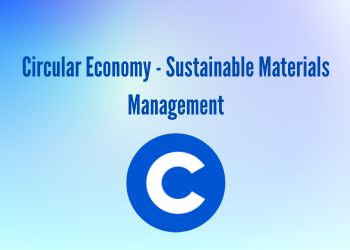 Circular Economy – Sustainable Materials Management
Circular Economy – Sustainable Materials Management
- Lund University via Coursera
- 66,161+ already enrolled!
- ★★★★★ (1,808 Rating)
Textile Effluent and its Management
-
-
- via NPTEL
-
Are you interested in understanding everything there is about textile effluent? If yes then this course is for you. Here you will get a chance to understand all about textile processing chemistry. Then you will learn about pollution control at the Mill stage.
- The reason why we chose this course is its focus on explaining the standards for textile effluent. You will learn different techniques for effluent treatment. Then you will understand the effluent treatment technologies. Next, you will learn in detail the filtration technologies and understand what de-sizing is. Topics like primary treatment of textile effluents and textile sludge are also included.
- This course is specifically designed for all the individuals out there who are interested in filtration technologies and want to know more about color removal technologies.
Continue with more Best NPTEL Online Textile Engineering Courses…
Textile Product Design and Development
-
-
- via NPTEL
-
This “Textile Product Design and Development” course focuses on explaining the functional and ergonomic design aspects of textile products. Here you will understand the design basic, requirement analysis, metric matrix, and specification development in detail.
- The reason why we chose this course is its focus on explaining all about product architecture, the use of natural analogy, material selection, and more. You will understand the application of mathematical models, performance property relation, and more in detail. The course also offers practical examples and case studies for a better learning experience.
- This course is for those who wish to understand topics like technical fabrics, protective clothing, estimation of design parameters, filter fabrics, geotextiles, and more.
Textile Finishing
-
-
- via NPTEL
-
In this highly informative course, the instructor will cover the science and application of various finishing processes that are based on the need and chemistry of the fibers namely cellulose-based, protein, and synthetics. You will understand in detail what shrink-resistant wool is.
- The best thing about this course is its focus on explaining the fundamentals of the techniques and the chemistry finishing agents. You will understand the different mechanisms applicable to various finishing techniques. Topics like waterproofing, water repellency, waterproof breathable textiles, soil repellency, and soil release are also included.
- This course is for those who wish to get an introduction to relevant machines and understand the characterization of finished fabrics in detail.
Natural Dyes
-
-
- via NPTEL
-
In this course, you will understand in detail what Natural Dyes are. The instructor will talk about how and why the fabrics need to go through chemicals even if they are not dyed.
- The reason why we chose this course is its focus on explaining all about natural and synthetic dyes. You will understand how Delonix also known as Gulmohar is the source of Carotenoid natural dye. This course has 40 lectures and with each lecture, you will learn something new about dyes.
- This course is for those interested in everything there is to know about natural dyes and their types. Those interested in knowing how the dyeing machine works should also enroll in this course.
Related Courses:
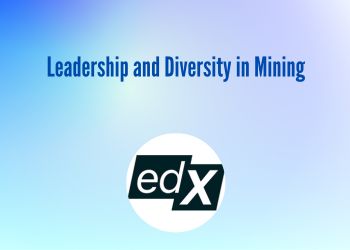 Leadership and Diversity in Mining
Leadership and Diversity in Mining
- The University of Queensland via edX
- 8 weeks (3–5 hours) per week of effort Required!
- Course Type (Self-Paced)
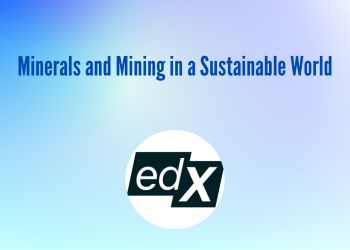 Minerals and Mining in a Sustainable World
Minerals and Mining in a Sustainable World
- The University of Queensland via edX
- 8 weeks (4–5 hours) per week of effort Required!
- ★★★★★ (5 Rating)
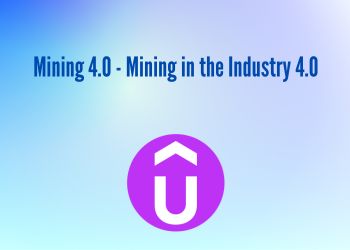 Mining 4.0 – Mining in the Industry 4.0
Mining 4.0 – Mining in the Industry 4.0
- CipherDev Labs™ via Udemy
- 523+ already enrolled!
- ★★★★★ (123 Rating)
Advanced Textile Printing Technology
-
-
- via NPTEL
-
In this course, the instructor covers the fundamentals of conventional printing. Here you will understand the complexities and limitations of printing. Starting the course, you will understand the concept of transfer printing. Then the instructor will cover the sublimation transfer printing topic that is commercially being used.
- The best thing about this course is its focus on explaining all about free path length and mechanism of transfer. You will understand all about digital textile printing and inkjet technologies. Then you will learn how development in textile printing has been the direct digital printing of textiles.
- This course is for those who wish to understand the advantages and principles of inkjet technologies and also the complexities involved in general machinery.



